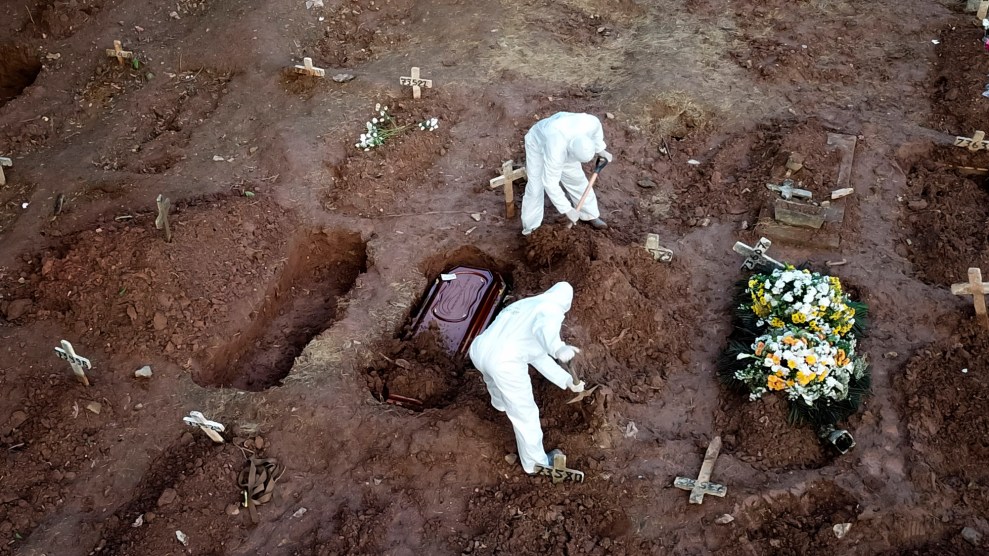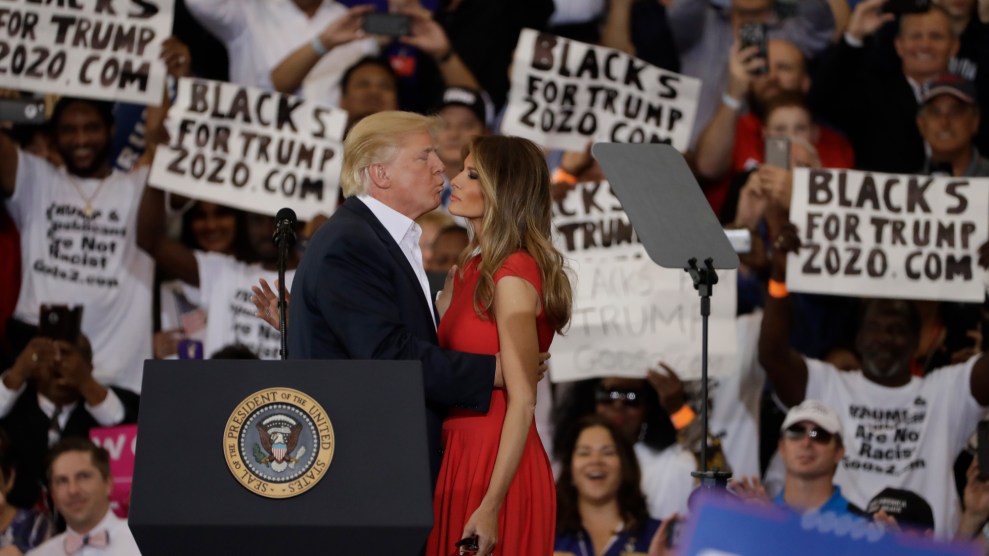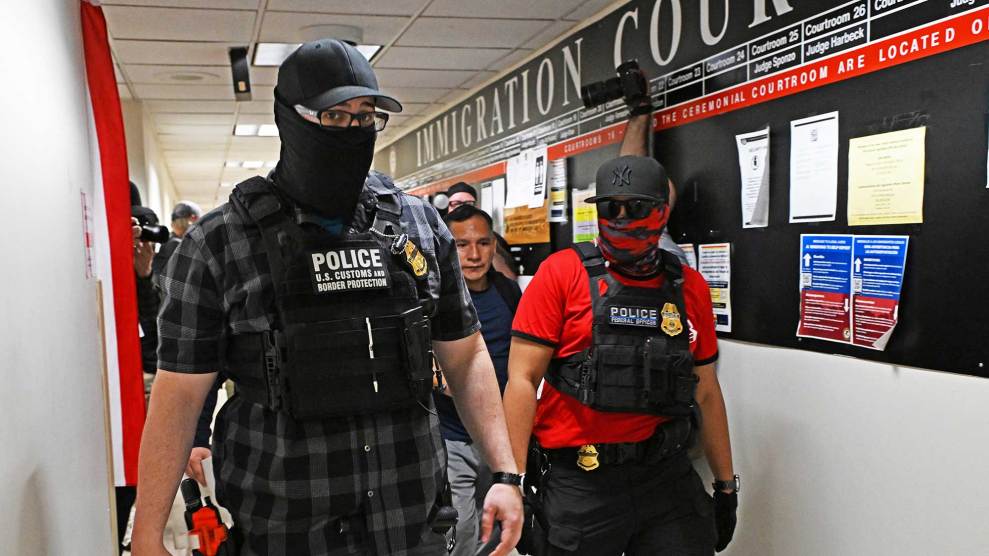On the day Brazil recorded its 500,000th death from COVID-19, thousands of Brazilians took to the streets to protest the government’s disastrous response to the pandemic. This is the second round of large nationwide demonstrations in 20 days calling for the impeachment of far-right President Jair Bolsonaro and for better vaccine rollout. Protests organized by grassroots movements, political parties, and unions are scheduled to take place in at least 400 cities across the country.
In Rio de Janeiro, it was hard to spot a single protester not wearing a mask. The crowd gathered next to a monument remembering the anti-slavery resistance leader Zumbi dos Palmares and marched along one of the main avenues of Rio’s historic Downtown neighborhood all the way to the Candelaria Church, the site of a 1993 massacre of children by the police. Mothers and fathers with their children joined the chorus of “Bolsonaro genocide.” An estimated 70,000 people attended the protest in Rio on Saturday.
A group of vaccinated octogenarians who fought against the military dictatorship in the 1960s and 1970s once again hit the streets in the name of democracy. Student leaders held black and white pictures with the faces of people who disappeared during those years of repression. Bolsonaro, a former army captain who has appointed several military officers to key positions in his government, has repeatedly glorified the dictatorship and praised a notorious torturer from that era. Protesters also remembered Marielle Franco, a Black councilwoman and human rights activist from Rio de Janeiro whose murder in 2018 remains unsolved, and voiced support for former President Lula in a potential run for the presidency in 2022.
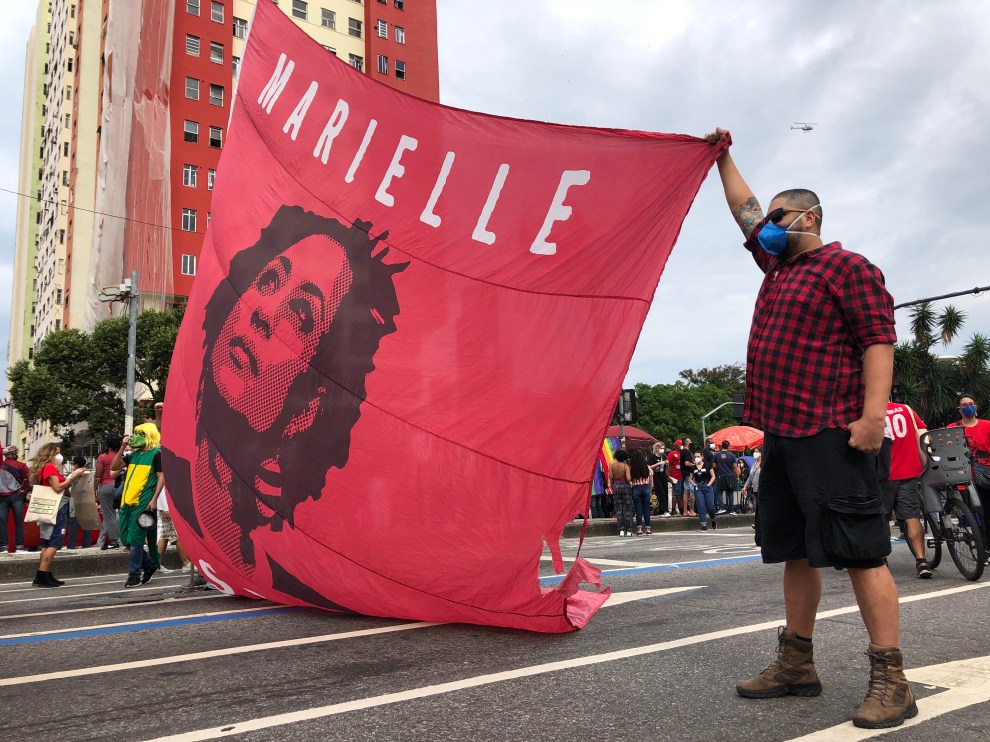
A man holds a flag in honor of Marielle Franco, a Rio de Janeiro councilwoman murdered in 2018.
Several demonstrators carried handwritten signs blaming Bolsonaro for the half million deaths. Since the early days of the COVID-19 outbreak, he has called the coronavirus a “little flu,” ignored public health measures, promoted disproven treatments, and turned down early vaccine deals. “If the people are protesting amidst a pandemic it’s because the government is more dangerous than the virus,” read one of the signs. One mother wrote: “I’m vaccinated, I don’t want to bury my children.” So far, less than 12 percent of Brazil’s population has been fully vaccinated.
Milady Bonfim de Jesus, 63, said she campaigned hard against Bolsonaro during the 2018 elections and is concerned about the president’s efforts to discredit Brazil’s electronic voting system, which she helped develop as an IT analyst at the Federal Data Processing Service (SERPRO), ahead of next year’s vote. Bonfim de Jesus has received only her first shot of the Covid-19 vaccine. “I’m scared of the virus, but I’m here,” she said. “What about the 500,000 people who died? I’ve lost friends and neighbors of 30 years. If there are other protests, I’ll be back.”
Holding a sign with the words “impeachment or death,” the teacher Helena Hawad, 58, described feeling angry, tired, sad, and fearful. “There’s too much symbolic violence,” she said. “It’s unbearable. We can’t wait any longer. It’s too dangerous.”
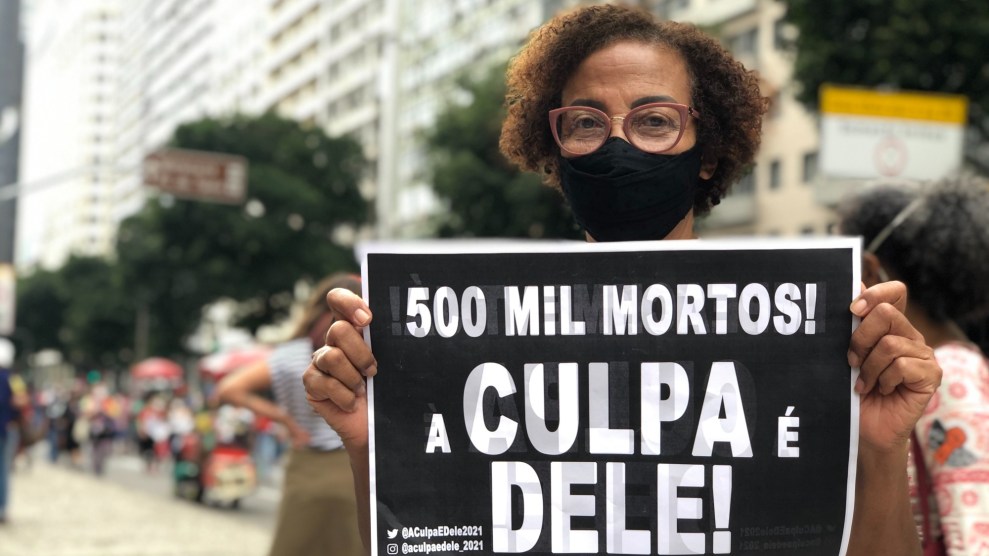
Milady Bonfim de Jesus with a sign blaming Bolsonaro for 500,000 deaths.
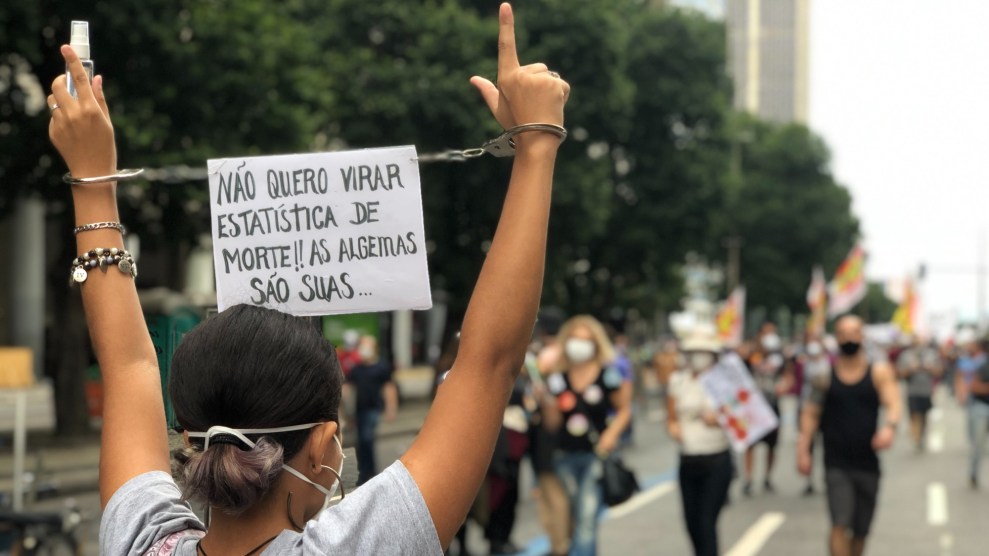
Woman in shackles carries sign saying: “I don’t want to become a death statistic. The shackles belong to you.”
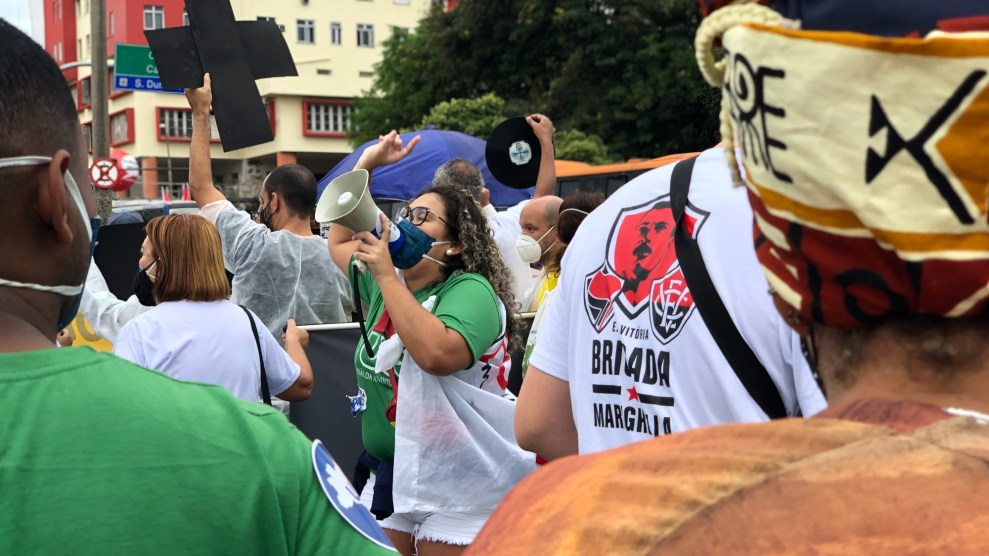
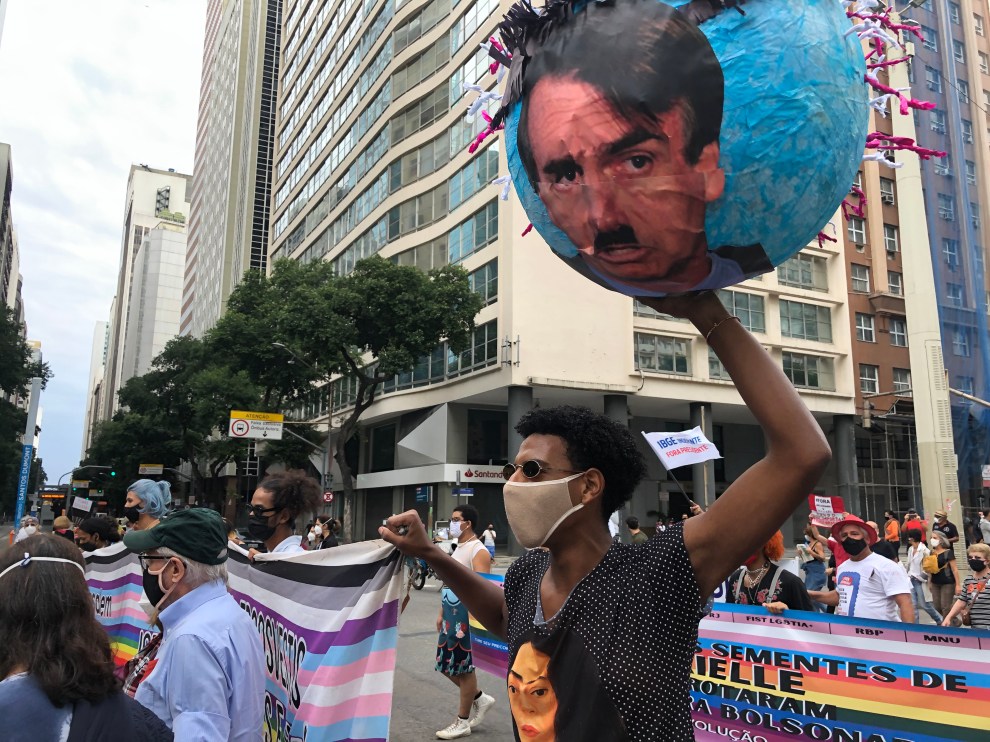
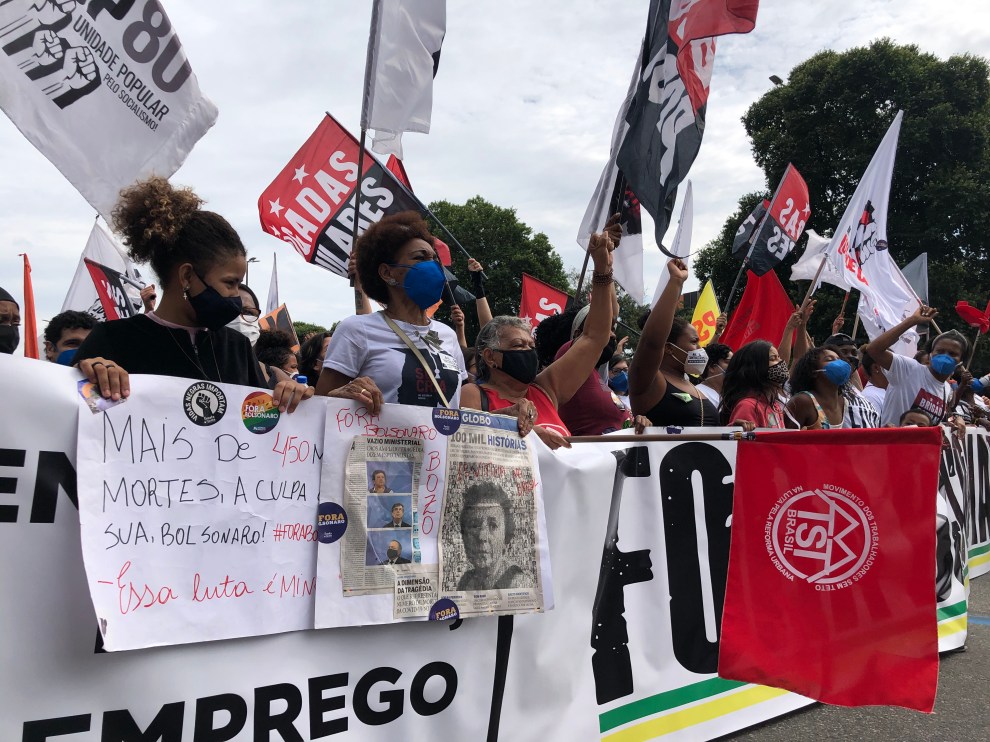
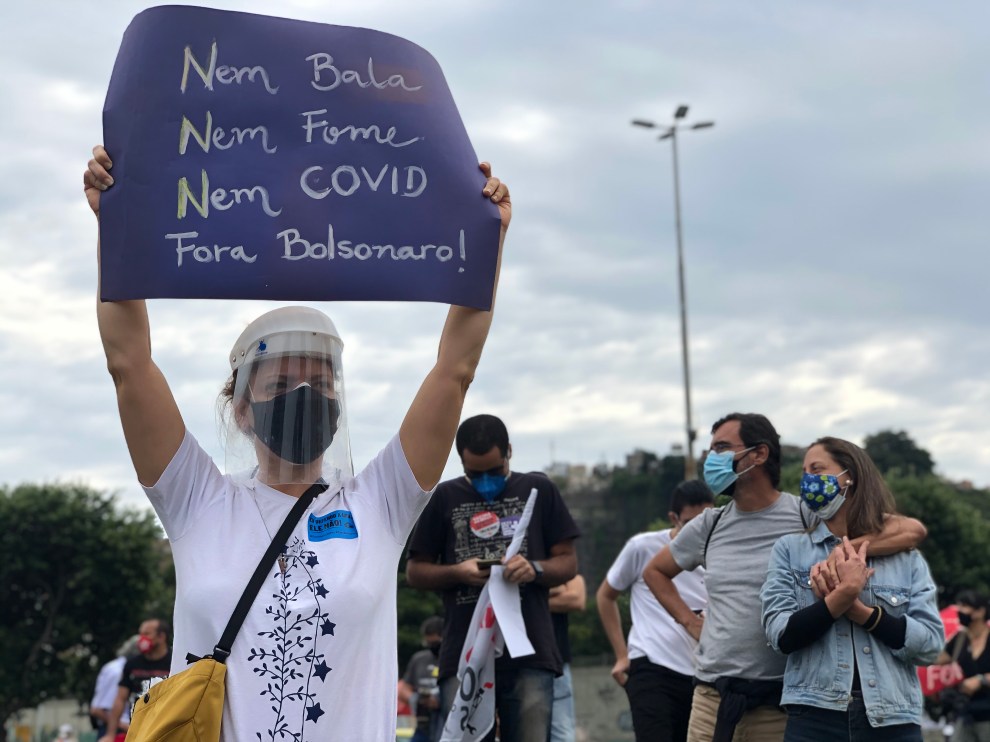
“No bullet, no hunger, no COVID. Bolsonaro out!”
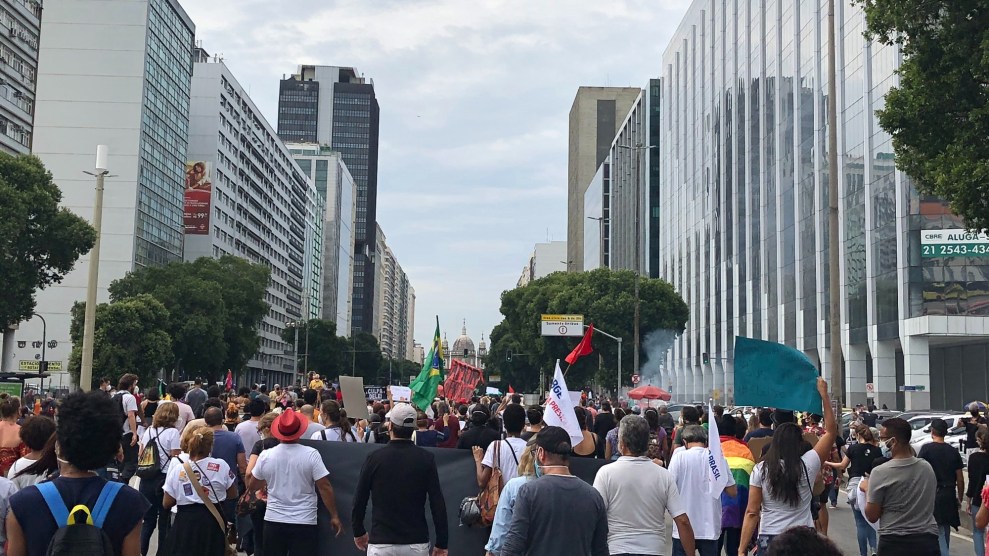
A crowd of protesters walk in Downtown Rio de Janeiro.
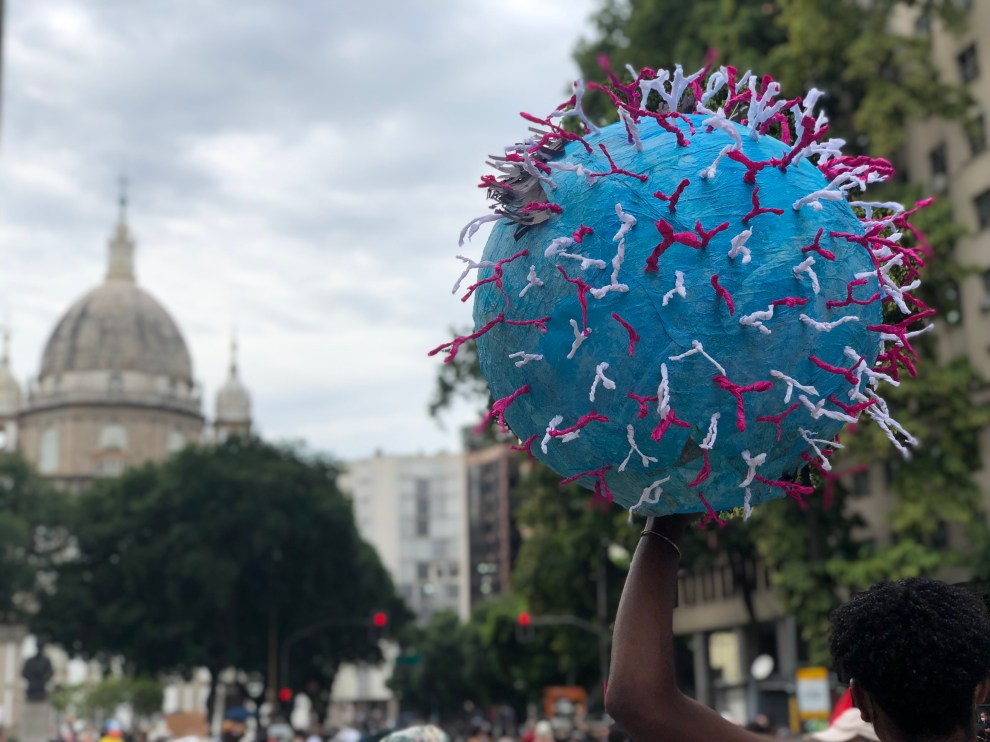
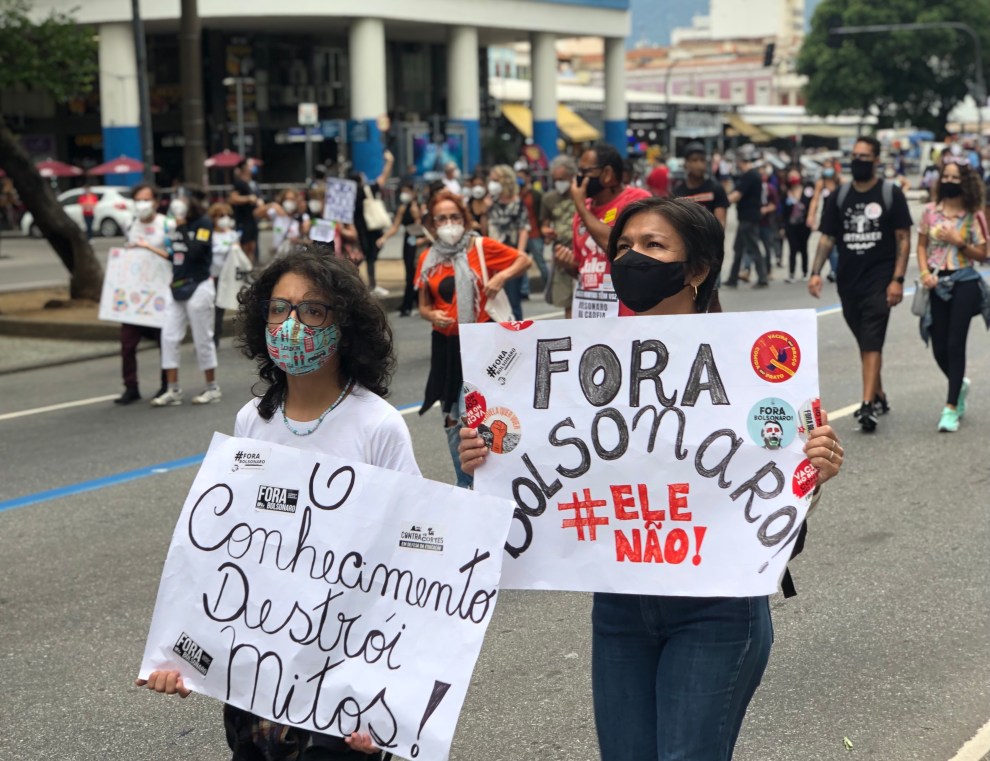
Protesters demand Bolsonaro be ousted.
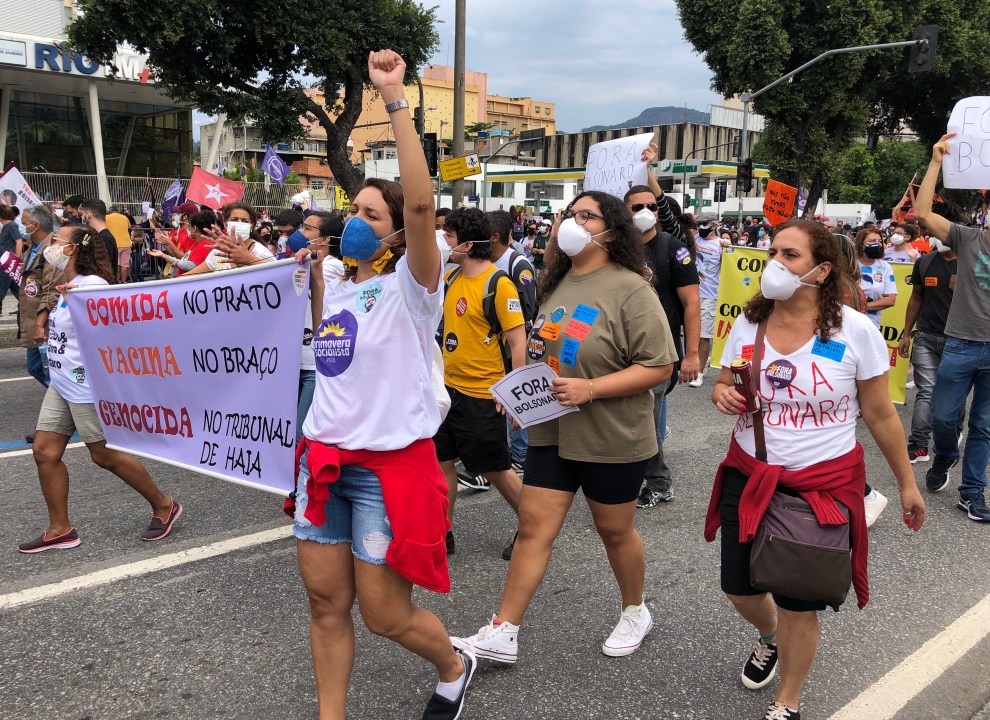
“Food on the plate, vaccine in the arm, genocide in the Hague Tribunal.”


